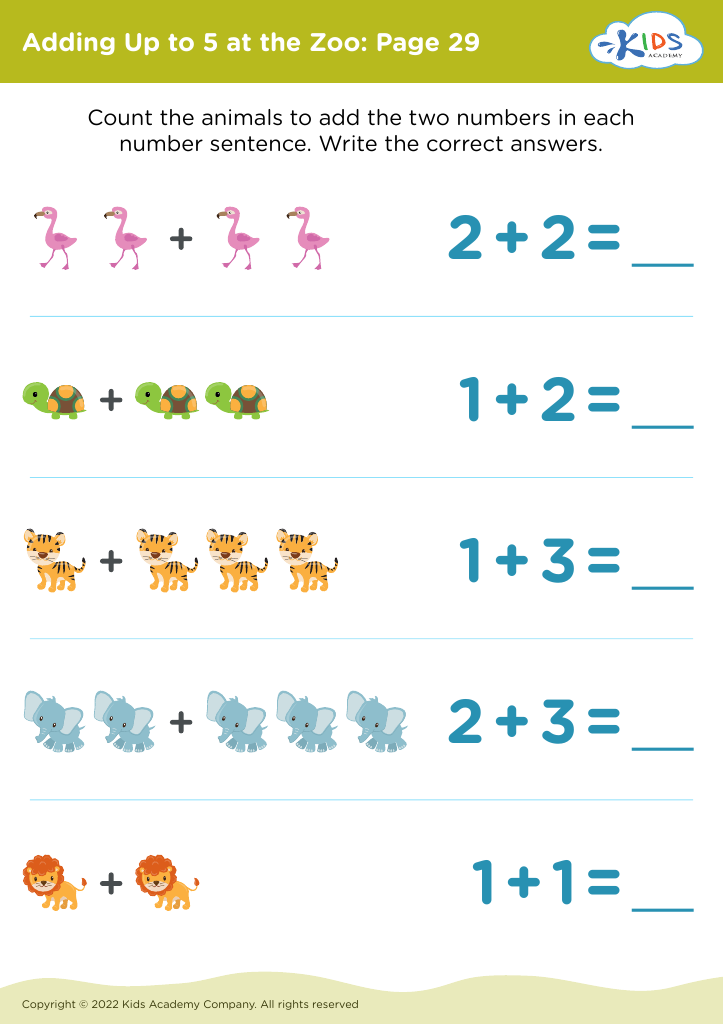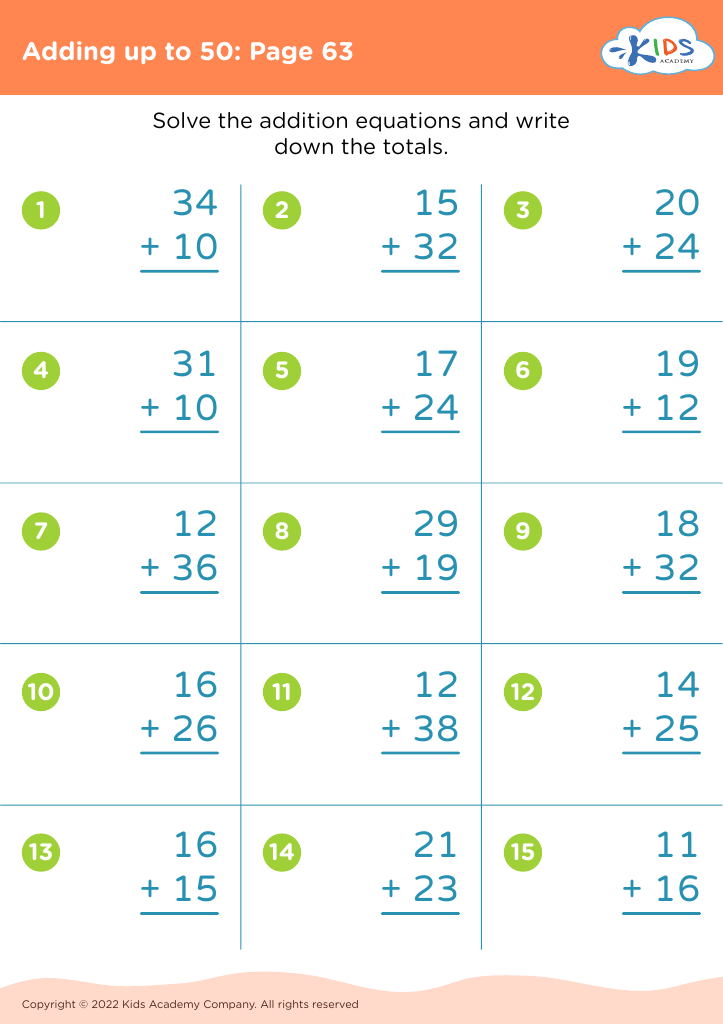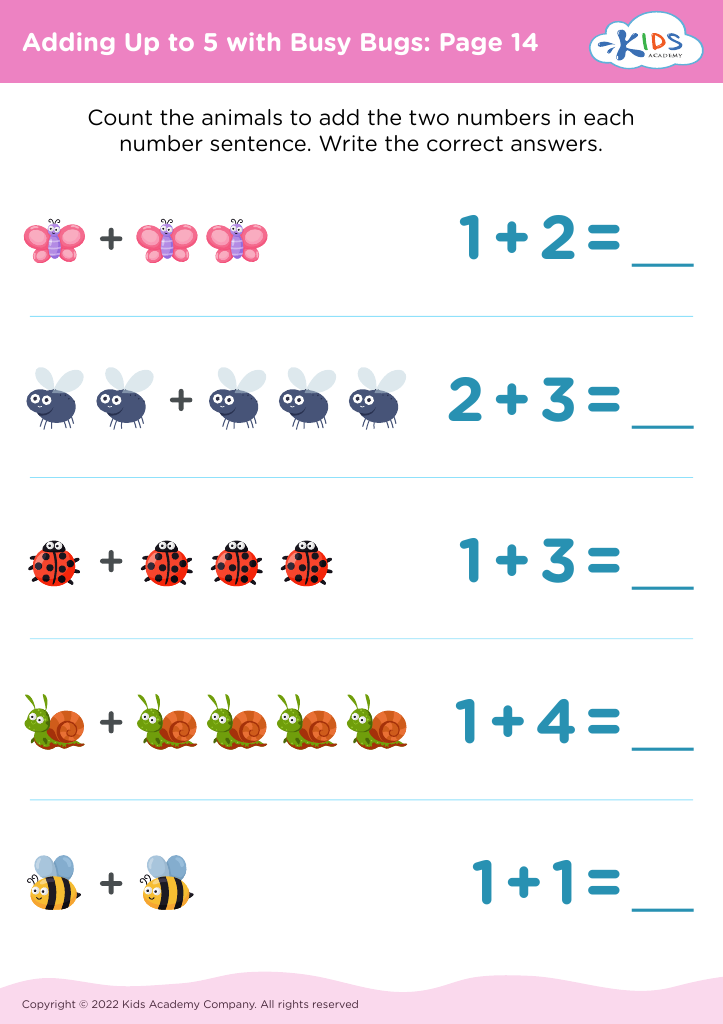Basic arithmetic understanding Addition Worksheets for Ages 3-7
4 filtered results
-
From - To
Discover our engaging Basic Arithmetic Understanding Addition Worksheets designed specifically for children aged 3-7. These worksheets provide young learners with a solid foundation in addition through fun and interactive activities. Featuring colorful illustrations and various difficulty levels, our worksheets cater to children’s diverse learning styles. Each sheet helps improve number recognition, counting skills, and problem-solving abilities while fostering a love for math. Tailored to support early education, these resources are perfect for both home and classroom use. Encourage your child's mathematical confidence and proficiency with our carefully crafted addition worksheets, ensuring they embark on a positive learning journey in math!
Understanding basic arithmetic, particularly addition, is crucial for children ages 3-7 as it lays the foundation for their future mathematical learning and overall academic success. At this fundamental stage, children develop not just numerical skills but also cognitive abilities, critical thinking, and problem-solving skills. Mastery of addition helps build confidence, encouraging a positive attitude towards math.
Moreover, early exposure to addition fosters numeracy skills that are essential for everyday living, such as budgeting, time management, and even cooking. When children grasp the concept of addition, they begin to connect it with their surroundings—counting toys, sharing snacks, or understanding sequences in games.
Furthermore, addition serves as a gateway to more complex mathematical concepts. A solid grasp of basic addition ensures that children will feel more confident when transitioning to subtraction and eventually more advanced topics, such as multiplication and division.
Therefore, parents and teachers must prioritize fostering a love for math through enjoyable activities and hands-on experiences. This early intervention can significantly enhance a child's academic journey and encourage lifelong learning, equipping them with essential skills for a successful future. Engaging children in playful ways to explore addition can make learning fun and meaningful.











.jpg)









